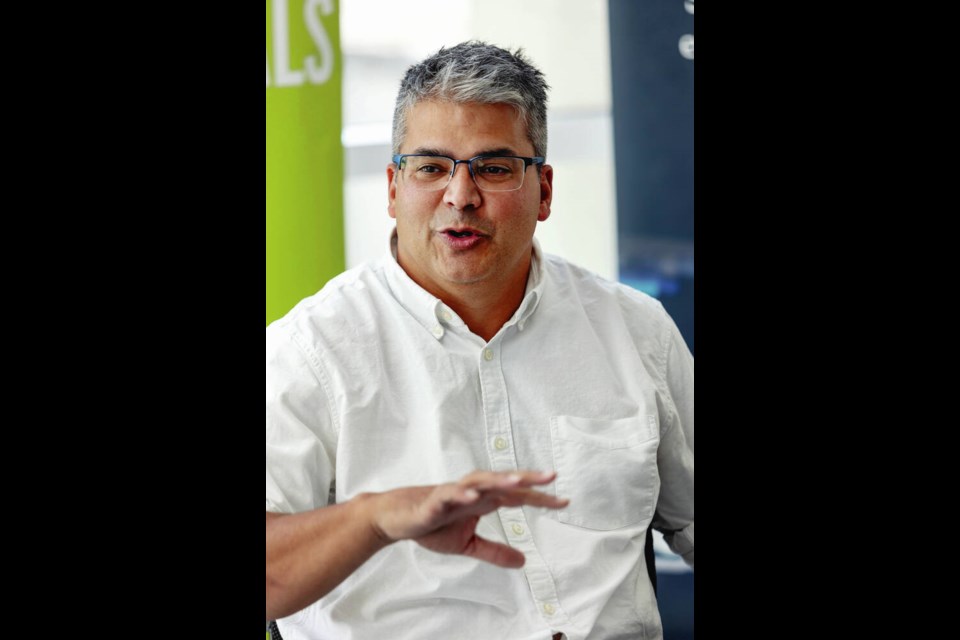Rahul Ray was diagnosed with multiple sclerosis just before his wedding 16 years ago.
He was 30 and an accomplished soccer player, and had been planning to do an Ironman triathlon.
“My whole life was as an athlete,” he said. “That’s the world that I knew, and then all of a sudden I couldn’t walk.”
He was diagnosed with primary progressive MS, a degenerative neurological disorder.
Now a father of three and a principal in an environmental-consulting firm, Ray credits magnetic-resonance imaging (MRI) technology with refining his care plan and keeping him aware of what’s happening to his body.
He told his story last week to support the Victoria Hospitals Foundation as it launched its $11-million Imaging is Power fundraising campaign. The goal is to raise money to upgrade three existing MRI machines and buy three other imaging tools — a CT scanner, a SPECT/CT scanner and a C-arm.
Ray said his surprise diagnosis came on Dec. 18, 2006. He immediately began to try all of the various medications available to him, but none worked.
“I was in a medical freefall, symptom after symptom appeared and the wheels were coming off in my life,” he said. “I really didn’t want to be me.”
Ray said that after falling on his face both literally and figuratively, he was offered the “next generation” of MS drugs through doctors at Royal Jubilee Hospital’s MS clinic, including Dr. Kristen Atwell-Pope.
The drug turned out to be effective, but also had the potential to worsen the effect of an MS-related virus that he had in his brain.
“There was one risk-management tool and that was MRI,” Ray said. “Every three or four months, I would go to Jubilee or VGH to get an MRI. The medical team could see if the JCV virus was growing.”
They could also precisely chart the effect of his medication, he said.
Now, he is at a point where his MS has been stable for seven years, with no new symptoms.
He said he undergoes MRIs twice a year, which allows Atwell-Pope to make what he calls “micro-shifts” in his treatment, as needed.
“I get to be an active dad, I get to be a good husband,” he said, then added with a laugh: “Just for record, my wife doesn’t cut me any slack — I still do dishes.”
His wife has been a vital part of adjusting to life with MS, said Ray, who also volunteers with Power To Be, a non-profit organization providing access to nature for people with challenges, including cognitive, physical and social barriers.
When he was no longer able to play soccer, he became a coach.
“I can still yell and direct from a wheelchair,” he quipped. “I get to live an amazing life, so thank you to the medical team who were able to help me keep going.”
MS is still tough for him, but MRI testing is there to keep tabs on his condition, Ray said, and the Imaging is Power campaign will help MRIs make a difference in the lives of many others, as well.
“As an MS community, we’ve benefited from technology, we have benefited from your generosity, we need your support with the next round. Please contribute to this incredible initiative.”
Donations can be made at online at victoriahf.ca/imaging, by calling the foundation at 250-519-1750, by visiting the foundation offices at Royal Jubilee, or by mailing a cheque to the foundation at Wilson Block, 1952 Bay St., Victoria, B.C. V8R 1J2.
>>> To comment on this article, write a letter to the editor: [email protected]



